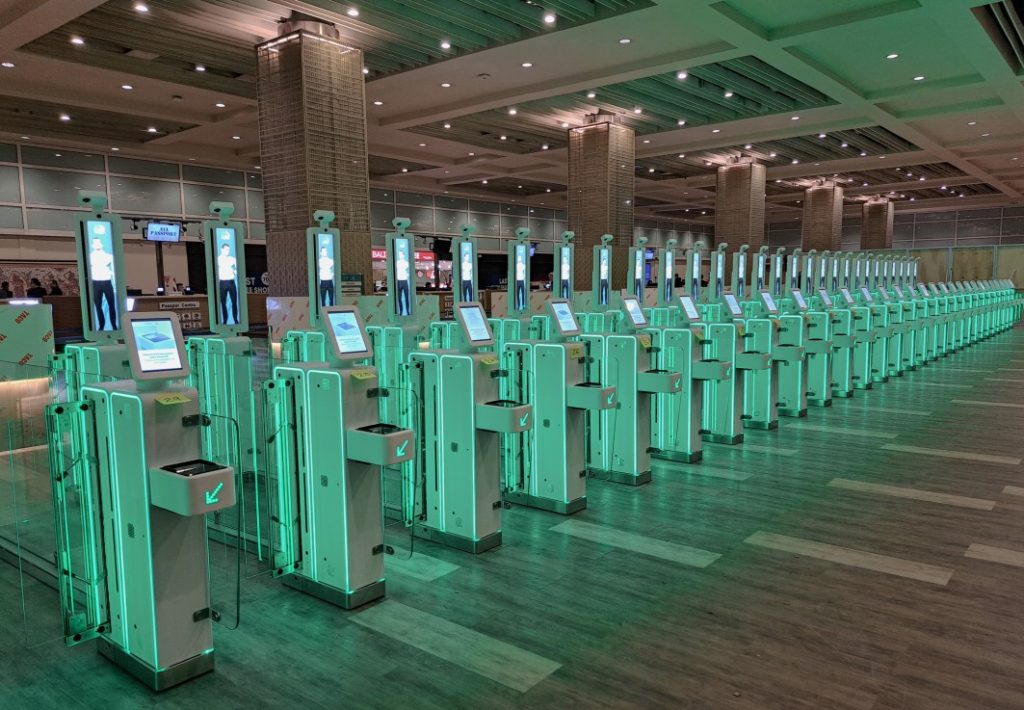Just three years ago, the future of business travel hung in the balance. Office spaces were being relinquished, metaverse technologies promised a life of WFA (Work From Anywhere), and the threat of another Covid wave loitered on the horizon. But a new “Business Travel Trends 2025” report co-authored by the trend forecasting agency Globetrender and Amadeus Cytric, a software-as-a-service platform for expense management, reveals a far more optimistic and dynamic projection for the year ahead.
As RTO (Return to Office) mandates increase and workers settle firmly back into Business As Usual, travelling for work is increasingly big business. According to data from the Global Business Travel Association, the market is expected to reach $1.64 trillion by the end of 2025, far outstripping 2024’s $1.48 trillion valuation. But what are the forces underpinning this upward surge?
Globetrender’s research pinpoints seven key trends set to shape the business trips of tomorrow. As one might expect, AI is forecast to drive disruption; reducing travel time via the gradual rollout of “Biometric Gateways” and cutting down on administrative tasks as “Agentic AI”personal assistants become mainstream.
However, while technology advances elsewhere – in the form of New Distribution Capabilities (NDCs), for instance – will also impact business trips, the report highlights markedly more human approach emerging, too. This shift is being propelled not only by the ongoing wellness revolution but also by the growing influence of principled, uncompromising Gen Z workers.
“Business travel is evolving in response to shifting workforce expectations, new technologies and a greater emphasis on wellbeing and human connections,” says Globetrender CEO, Jenny Southan. “In 2025, companies that adapt – whether through AI‑driven automation, reimagined meeting spaces, or a more strategic approach to traveller health – will be best placed to maximise the value of corporate trips.”
As companies seek to meet the expectations of a rapidly changing workforce, the need to keep pace with broader cultural shifts and technologies is more necessary than ever. We’ve selected five trends from the report that should be on your radar, whether you’re an Executive Assistant looking to impress or flying high with the C-suite.
1. Agentic AI
In recent years, there has been much talk of AI’s transformative capabilities, but few concrete examples, leading many to question whether generative AI is just another passing hype like Bitcoin or the metaverse. Expect the conversation to shift drastically in the year ahead, with agentic AI assistants entering the fray.
Business travel trends in 2025 include meetings in the sky
These advanced platforms won’t simply respond to user input; they’ll proactively anticipate needs – no prompt necessary. The benefits to business travellers are manifold: from rebooking flights in real time to optimising itineraries based on shifting schedules. As these tools integrate into workers’ everyday software and devices, travellers will be freed from mundane logistics, allowing more time for focused, meaningful work.
2. Meetings in Motion
The traditional boardroom is evolving, with taxis, planes, and trains becoming increasingly attractive venues for business meetings. This shift isn’t being driven solely by ultra-fast wifi or Microsoft’s holographic Mesh technology (though those aren’t to be dismissed). Rather, it’s the growing adoption of a more informal approach to business, along with more adaptable transport options.
In the air, airlines are enhancing business class offerings by introducing communal seating arrangements. This development is mirrored on the ground, with driverless taxis reconfiguring car layouts from forward- to inward-facing seats. Meanwhile, environmental concerns continue to push train travel forward as a preferred option among corporate travellers, setting the stage for even more meetings in motion.
3. New-Gen Frequent Flyers
Prepare for the Gen Z effect to take hold as the young upstarts of tomorrow’s workforce (those born between 1997 and 2012) start heading on assignment. Unlike their elders, members of this generation are more likely to perceive work-related travel as having a positive impact on their mental health, with many embracing trips as an opportunity for both professional and personal growth.
Simply heading on the work trip isn’t enough, however. To maximise the value of their travel experiences and minimise their carbon footprint Gen Z are squeezing extra days abroad in and around their work obligations, often bringing friends and family along for the ride. Their desire for flexibility, sustainability, and meaningful experiences is reshaping what it means to be a “frequent flyer”.
Business travel trends in 2025 include meetings in the sky
4. Biometric Gateways
Tomorrow’s business travellers will no longer be tethered to lengthy queues and piles of travel documents. In October 2024, the International Air Transport Association announced that a “fully digital travel experience is closer to reality” following a successful test of digital passport technology between Hong Kong and Tokyo.
Skipping long border control queues is just the beginning. As digital wallets, company IDs, and frequent flyer credentials are consolidated digitally, expect personalised offers from airlines and airport retailers, faster visa processing, and more. The rollout will be gradual, with Europe planning to issue Digital Identity Wallets by 2027, but the effects will be transformative.
5. Jetset Hacking
One lasting legacy of the pandemic is a collective focus on health and wellbeing. While the business travel industry has been slow to catch up, change is underway. Brands like Equinox Hotels, a spinoff of the elite gym chain, are raising the bar by offering services like Jetlag Reset, cryotherapy chambers, and productivity-boosting IV infusions.
Airlines are also stepping up. Qantas’s Project Sunrise cabin, designed to regulate circadian rhythms, and Vistajet’s “360” wellness programme, which aims to enhance clarity, focus, and relaxation, are just two examples of how the travel sector is responding to the pursuit of self-optimisation across touchpoints.
